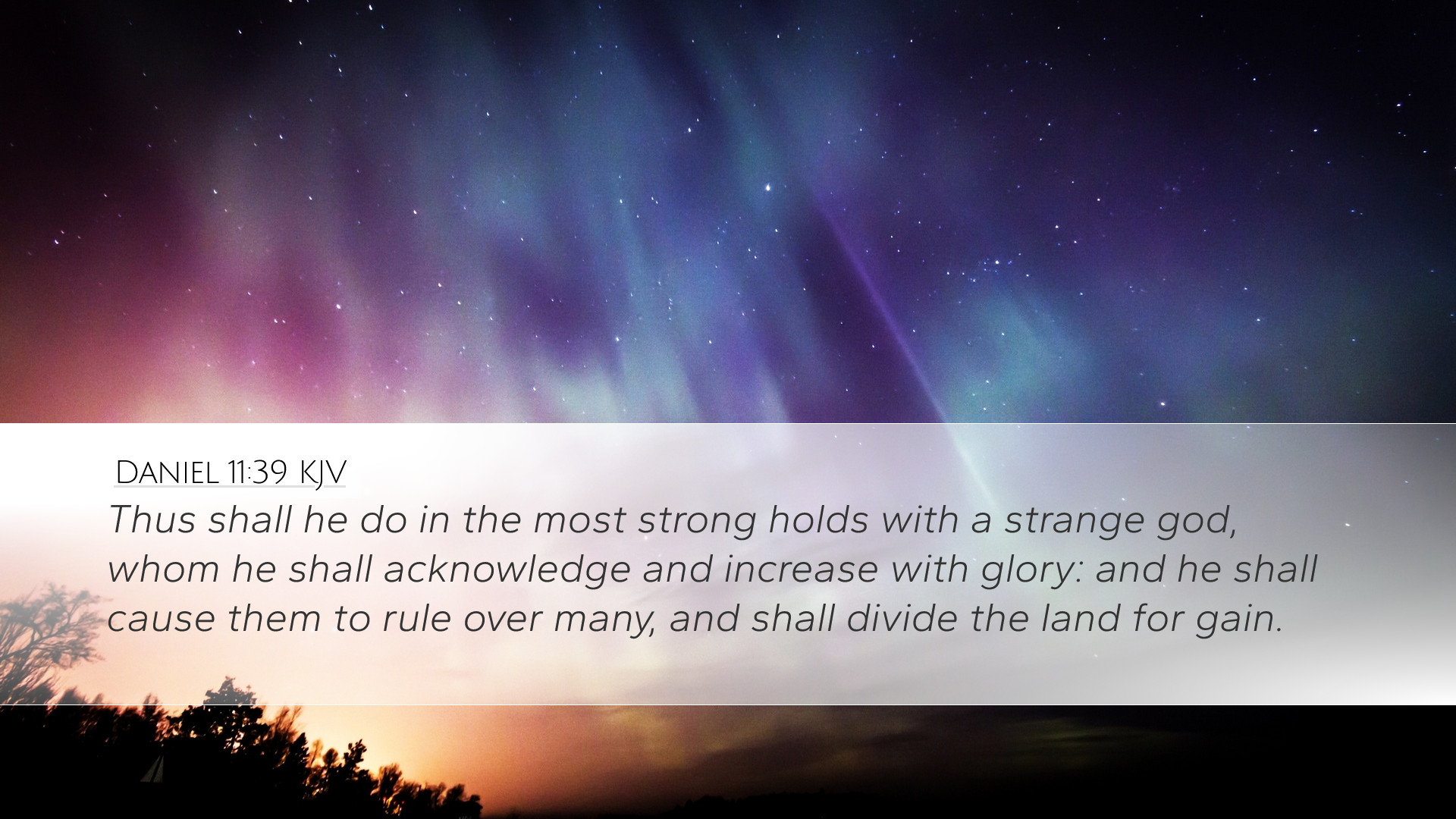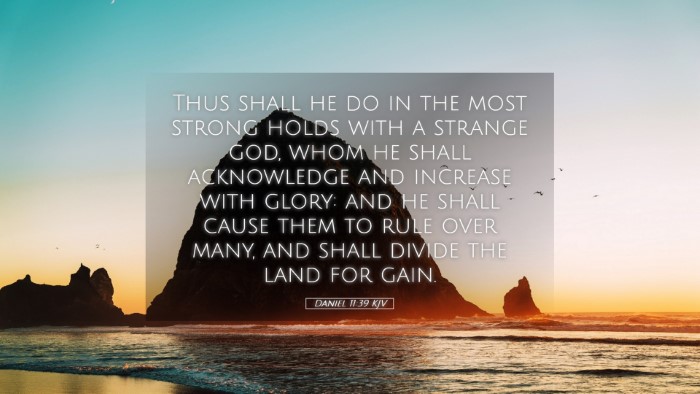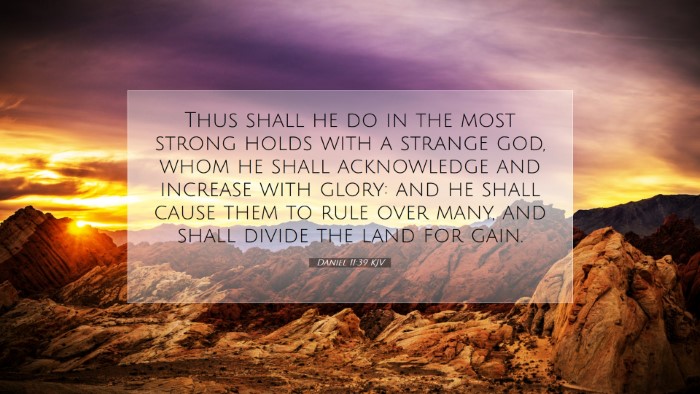Commentary on Daniel 11:39
Introduction
Daniel 11:39 serves as a critical verse within the apocalyptic context of the Book of Daniel. This verse provides insight into the characteristics and actions of a powerful ruler often interpreted as the Antichrist in eschatological studies. The conversation surrounding this passage has been enriched over centuries by the contributions of various commentators, including Matthew Henry, Albert Barnes, and Adam Clarke. Their observations and interpretations offer illuminating perspectives on this challenging text.
Verse Text
“Thus shall he do in the most strong holds with a strange god, whom he shall acknowledge and increase with glory: and he shall cause them to rule over many, and shall divide the land for gain.” (Dan 11:39, KJV)
Exegesis and Contextual Background
Daniel 11 can be understood as a prophetic overview of the struggle between the kingdoms of the world, particularly focusing on the conflict between the Ptolemaic and Seleucid empires. As we approach verse 39, it becomes clear that the text shifts towards the culmination of these earthly powers with a central figure who epitomizes rebellion against God and exaltation of self.
The Character of the Ruler
Matthew Henry articulates that the ruler depicted in this verse exemplifies a zealous devotion to a foreign god, reflecting a profound apostasy that leads others astray. This individual is characterized by his cunning and ability to manipulate those around him, gaining their loyalty through deceitful promises and the allure of power.
Idolatry and Its Implications
The phrase “strange god” is significant, suggesting that this ruler embraces a form of idolatry that is foreign to the covenant people of Israel. Albert Barnes notes that this alludes to the worship of deities that lead people away from true worship and demonstrate a rejection of Yahweh. Such behavior underscores the moral decay and spiritual crisis prevalent in the last days.
The Concept of Glory and Rule
The ruler is said to “acknowledge and increase with glory.” Adam Clarke emphasizes that this implies a legacy built upon an antithetical pursuit of glory – one that contradicts divine authority and results in chaos. The power he wields is one that draws followers through fear rather than true allegiance, dividing and conquering the land for personal gain.
Theological Implications
In understanding the theological implications of Daniel 11:39, it is crucial to identify the spiritual warfare present in the narrative. Matthew Henry asserts that the adversary’s end-times ruler aligns himself with dark forces, leading to a seduction of the masses. This theme of spiritual warfare is prevalent across Scripture and serves as a warning to contemporary believers about the nature of leadership and allegiance.
God's Sovereignty in Human Affairs
While the passage evokes a sense of impending doom through the rise of this ruler, it is essential to remember the overarching theme of God’s sovereignty. The presence of this bizarre god signifies not just the ruler's abandonment of God but also highlights divine providence – ultimately, God is in control of history. Albert Barnes points out that these events unfold under God's sovereign plan, reminding us that He allows such leaders to rise to fulfill His ultimate purposes.
Encouragement to Believers
This verse serves as a cautionary tale, inspiring believers to remain steadfast in their faith. Adam Clarke encourages Christians to keep their hope anchored in Christ, knowing that despite the power and influence of worldly rulers who seem to operate with impunity, God’s faithfulness remains unbroken. The passage invites a reflection on the nature of true authority and the eternal kingdom of God, which surpasses all earthly powers.
Conclusion
Daniel 11:39 encapsulates the essence of human rebellion and the reality of spiritual warfare. The insights provided by esteemed commentators such as Matthew Henry, Albert Barnes, and Adam Clarke offer significant depth for understandings of eschatology and practical theology. As pastors, students, and theologians delve into this passage, they are reminded of the importance of discerning true leadership that honors God versus the fleeting power of those who oppose His will. Ultimately, this verse encourages a vigilant and prayerful life in anticipation of Christ's return, confidently trusting in God’s ultimate authority and plan.


